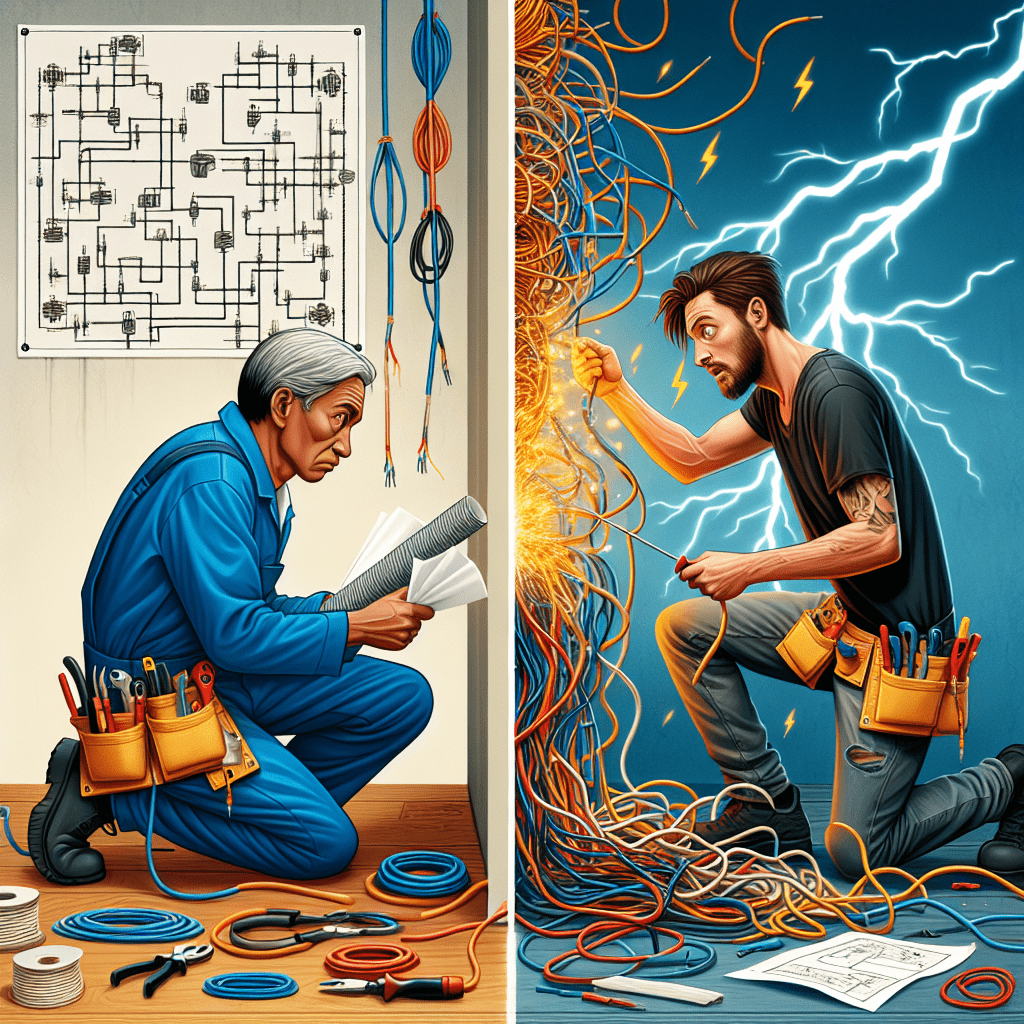Electrical installation is a critical aspect of any construction project, whether it’s a new home build or a renovation. Proper wiring is essential for ensuring the safety and functionality of a building’s electrical system. However, electrical installation can be a complex and daunting task for those who are not familiar with the process. In this article, we will discuss the dos and don’ts of electrical installation, providing expert tips for safe wiring.
The Dos of Electrical Installation
1. Hire a licensed electrician: One of the most important dos of electrical installation is to always hire a licensed electrician for the job. Licensed electricians have the training and expertise necessary to ensure a safe and code-compliant installation.
2. Use the right tools and materials: It’s essential to use the right tools and materials for the job. This includes high-quality wiring, outlets, switches, and other components. Using substandard materials can lead to electrical hazards and malfunctions.
3. Plan the layout carefully: Before starting the installation, take the time to plan the layout of the electrical system. This includes determining the placement of outlets, switches, and fixtures to ensure optimal functionality and convenience.
4. Follow electrical codes and regulations: Compliance with electrical codes and regulations is crucial for a safe installation. Always follow local building codes and regulations when installing electrical wiring in a building.
The Don’ts of Electrical Installation
1. Don’t overload circuits: Avoid overloading circuits by connecting too many devices to a single circuit. Overloaded circuits can overheat and cause electrical fires.
2. Don’t cut corners: Cutting corners during electrical installation can lead to safety hazards and code violations. Always follow proper installation procedures and take the time to do the job right.
3. Don’t attempt DIY electrical work: Electrical work should always be left to the professionals. Attempting DIY electrical work without the necessary training and experience can be dangerous and lead to serious injuries.
4. Don’t ignore warning signs: If you notice any warning signs of electrical problems, such as flickering lights, tripped circuit breakers, or burning smells, don’t ignore them. These could be indications of underlying issues that need to be addressed promptly.
Expert Tips for Safe Wiring
1. Use GFCI outlets in wet areas: Ground Fault Circuit Interrupter (GFCI) outlets should be used in wet areas such as kitchens, bathrooms, and outdoor spaces to prevent electrical shocks.
2. Install surge protectors: Surge protectors can help protect your electrical devices from power surges and spikes, which can damage sensitive electronics.
3. Label electrical panels: Properly label electrical panels to make it easy to identify circuits in case of an emergency or when performing maintenance.
Conclusion
Electrical installation is a critical aspect of building construction, and it’s essential to follow the dos and don’ts of safe wiring. By hiring a licensed electrician, using the right tools and materials, and following electrical codes and regulations, you can ensure a safe and code-compliant installation. Remember to plan the layout carefully, avoid overloading circuits, and never attempt DIY electrical work. By following these expert tips, you can create a safe and functional electrical system in your building.
FAQs
Q: Can I do my own electrical work?
A: It is not recommended to do your own electrical work unless you are a licensed electrician. DIY electrical work can be dangerous and lead to serious injuries or code violations.
Q: How do I know if my electrical system needs an upgrade?
A: If you experience frequent power outages, tripped circuit breakers, or other electrical issues, it may be time to consider upgrading your electrical system.
TIP:
Always remember to turn off the power at the electrical panel before working on any electrical wiring to avoid the risk of electric shock or injury. Safety should always be the top priority when working with electricity.
#Dos #Donts #Electrical #Installation #Expert #Tips #Safe #Wiring

